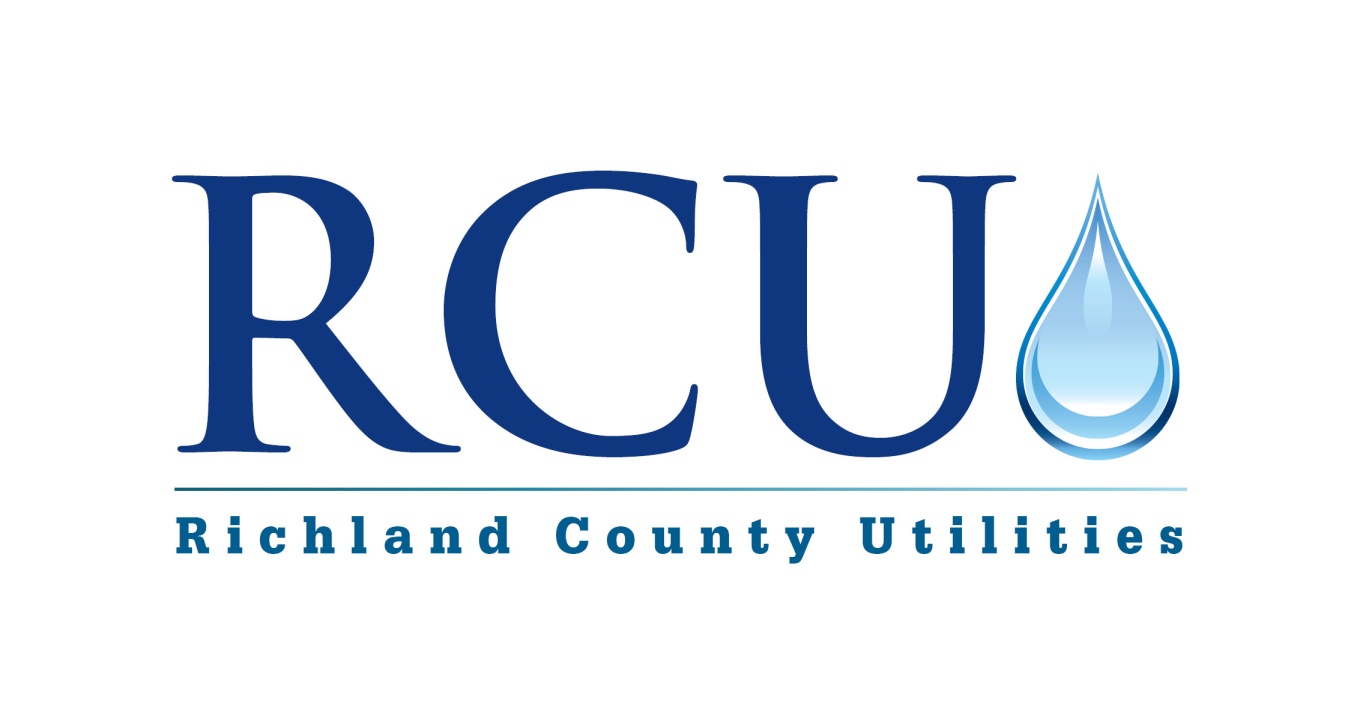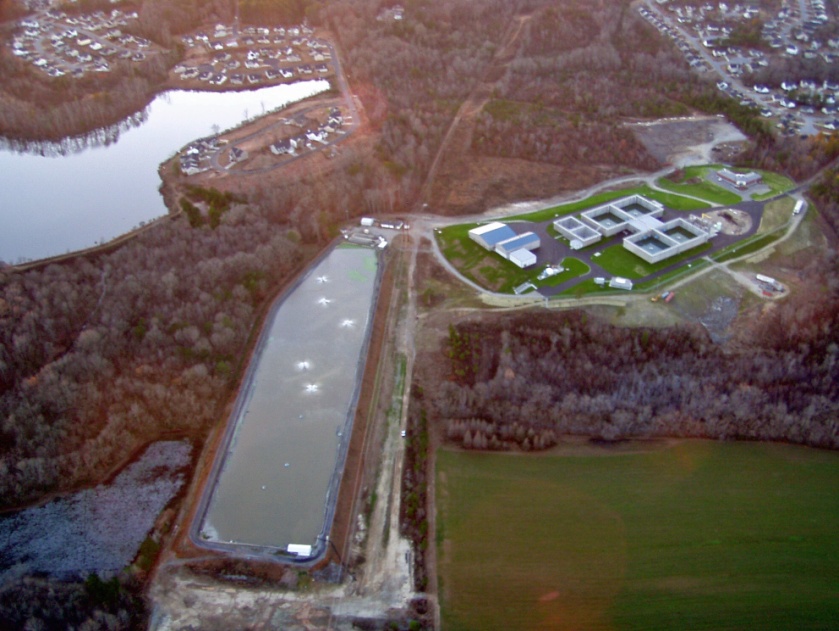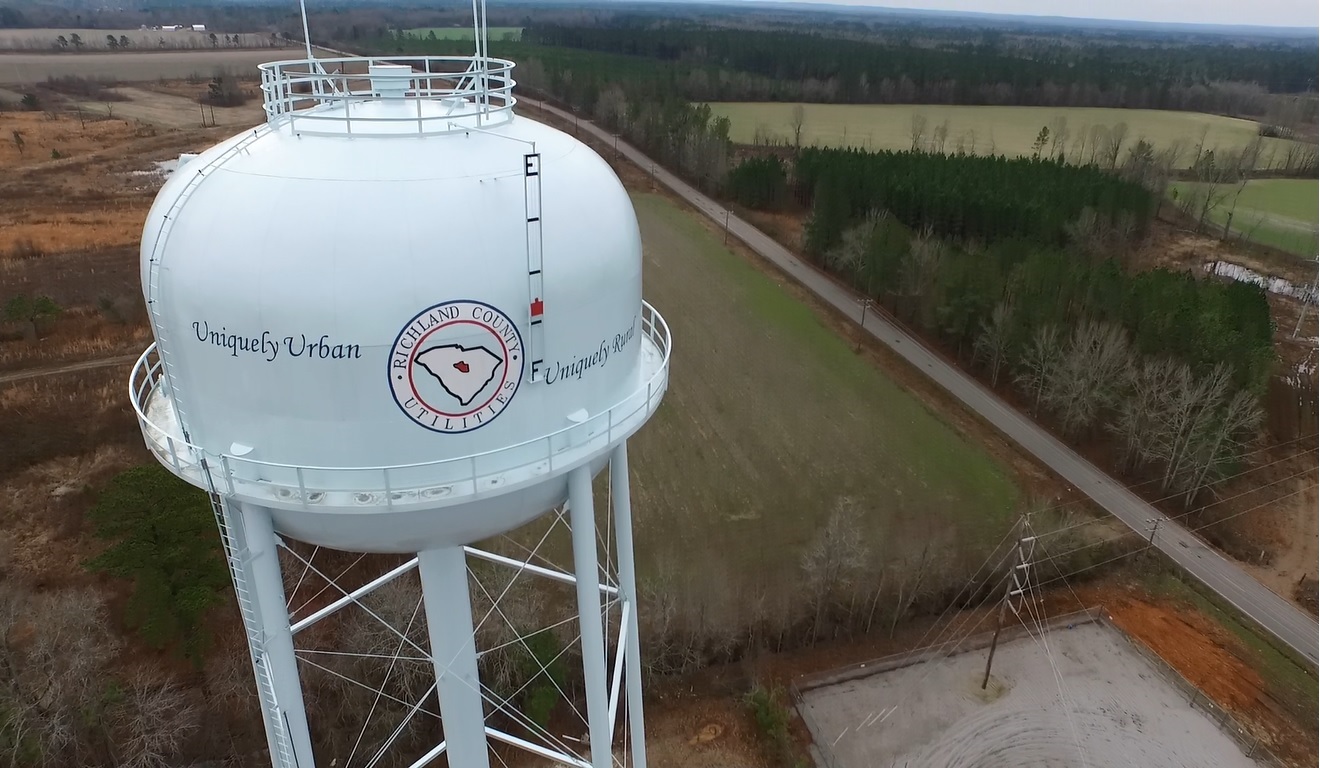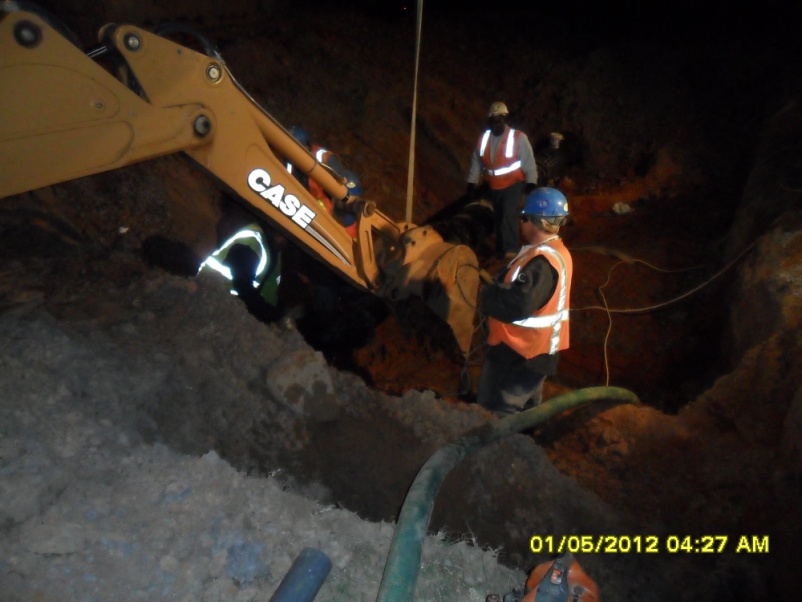
Clean drinking water and proper sanitation are things most of us take for granted in the United States and other parts of the civilized world. In the United States, investigation into water treatment began in the early 1900s. Improvements on treatment processes are continued through innovation, research and technology. Concerns with public health identified the importance of neutralizing pathogens in water sources to protect against illness. Federal legislation was developed to outline requirements for proper sanitation and protection of drinking water supplies. Today, the water and wastewater industry is one of the most regulated industries in the US.

Richland County Utilities currently is responsible for the proper operation and maintenance of three (3) wastewater treatment facilities and four (4) community water systems, which must be operated seven days a week, three hundred sixty-five days a year. These water and wastewater treatment facilities provide an invaluable service to the citizens of Richland County.
In July 2005, Richland County entered into a Receivership Agreement with the South Carolina Department of Health and Environmental Control (SCDHEC) to assume operations of one wastewater treatment facility and two community water systems that were abandoned by a private utility. These systems had histories of poor water quality and environmental regulation violations. In 2012 Richland County constructed a $5 million water supply system to replace the small outdated systems and to provide safe drinking water and fire protection for the Hopkins community.
In 2012 Richland County constructed a $5 million water supply system to replace the small outdated systems and to provide safe drinking water and fire protection for the Hopkins community.
Richland County Utilities also operates and maintains a wastewater treatment facility that serves the Eastover community. In 2011 The County obtained a $3.8 million grant to design and build a new one million gallon a day treatment plant to replace the existing plant that was beyond repair. The project provided additional capacity for future growth to ensure adequate treatment in the future.
Construction of a new $32 million wastewater treatment facility near the shore of the Broad River serves citizens in the Irmo/Harbison/Ballentine areas of Northwest Richland County. Richland County employees treat approximately two million gallons of wastewater per day at this facility.  On site Utilities also owns and operates a water and wastewater testing laboratory, certified by the South Carolina Department of Health and Environmental Control. The laboratory provides sampling and analysis of water and wastewater for the County’s treatment facilities. The certified laboratory allows operators timely and cost-effective access to water quality data and helps ensure safety through effective treatment.
On site Utilities also owns and operates a water and wastewater testing laboratory, certified by the South Carolina Department of Health and Environmental Control. The laboratory provides sampling and analysis of water and wastewater for the County’s treatment facilities. The certified laboratory allows operators timely and cost-effective access to water quality data and helps ensure safety through effective treatment.
Water and wastewater treatment requires a dedicated staff, willing to go above and beyond daily job functions. Operators must respond to work during extreme weather conditions, emergencies, and holidays. Citizens of Richland County depend on Utilities operators to provide uninterrupted safe water supplies and sanitation services. Operators are certified by the South Carolina Department of Labor, Licensing, and Regulation to have the specialized skills, and knowledge required. Additionally, water and wastewater operators routinely work in hazardous conditions, confined spaces, around dangerous liquids and gases, and continually exposed to pathogenic bacteria and viruses. Utilities professionals continually train in safety techniques and procedures to protect against the many hazards encountered.
 Richland County Utilities is committed to their community. Utilities works with outreach programs and not-for-profit organizations, like Midlands Technical College and ECPI University, who routinely schedule field trips for students. Tours of the Broad River Treatment Facility are designed to educate about water quality, treatment, environmental impact, and other industry innovations. Many personnel are also members of the Water Environment Association of South Carolina, a not-for-profit organization for water professionals. This Association provides many educational opportunities for its members and is actively involved in promoting environmental water quality.
Richland County Utilities is committed to their community. Utilities works with outreach programs and not-for-profit organizations, like Midlands Technical College and ECPI University, who routinely schedule field trips for students. Tours of the Broad River Treatment Facility are designed to educate about water quality, treatment, environmental impact, and other industry innovations. Many personnel are also members of the Water Environment Association of South Carolina, a not-for-profit organization for water professionals. This Association provides many educational opportunities for its members and is actively involved in promoting environmental water quality.